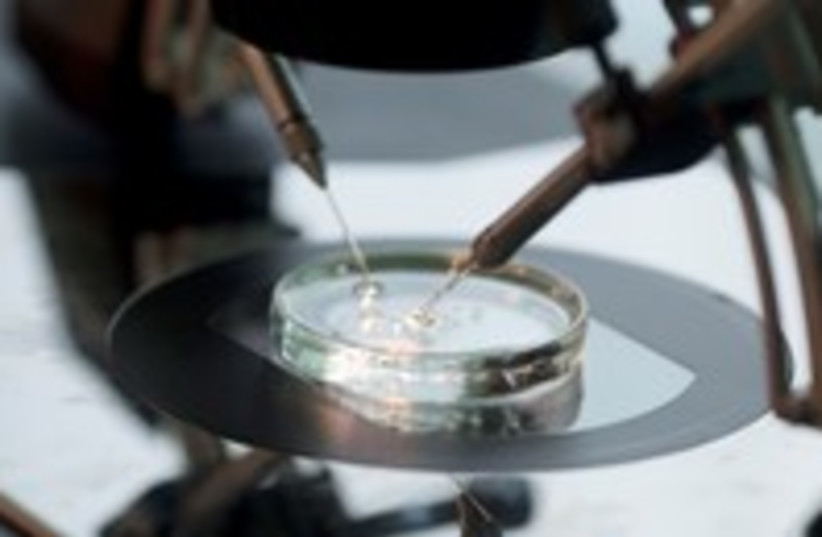The mRNA coronavirus vaccines have no negative effect on frozen-thawed embryo transfer, which is the core practice of IVF (In-Vitro Fertilization), according to a study from Israel's Sheba Medical Center published in the peer-reviewed medical journal Fertility and Sterility on Thursday.
<br><br><strong>No negative impact on IVF treatments</strong>
Researchers analyzed 672 embryo transfers among a cohort of 428 women up to the age of 38 who had undergone IVF treatment – including 141 that were either vaccinated with two mRNA coronavirus vaccines or recovered from the virus.
The researchers ultimately found no difference in the rate of pregnancy between the vaccinated and unvaccinated test groups.
“One of the concerns raised by women of childbearing age around the world since the introduction of the coronavirus vaccine was that it could negatively impact IVF treatments,” said Prof. Raoul Orvieto, director of Sheba’s Infertility and IVF Institute. “Many concerned women and mothers have approached us on this issue.”

Vaccine hesitancy based on potential side effects was an obstacle in reaching high universal vaccination rates, though many globally continue to get their shots. Side effects – though typically not severe – were commonly reported as a result of the vaccines, ranging from cold symptoms to more severe maladies. For instance, a National Institue of Health (NIH) study published in January found that menstrual cycles can get up to a full day longer for some women after being vaccinated.
<br><br><strong>mRNA vaccines in other studies</strong>
Other studies have proven the safety and efficacy of the new mRNA vaccines. One published in the medical journal Reproductive Biology and Endocrinology in May 2021 demonstrated that there was no difference in ovarian stimulation and embryological variables during IVF cycles conducted before and after receiving the mRNA coronavirus vaccine. Last month, a study published in the medical journal Human Reproduction found that that the vaccinations had no negative effect on women’s ovarian reserve within three months of receiving the vaccine.
“This groundbreaking study shows that the vaccine does not affect a woman's chance of getting pregnant using the FET method," Orvieto concluded.
Sheba, Israel’s largest hospital and medical center, was ranked as the 10th best hospital in the world by Newsweek in 2021 – falling from 9th place in 2020. Both spots made Sheba the highest-ranked hospital in Israel.
